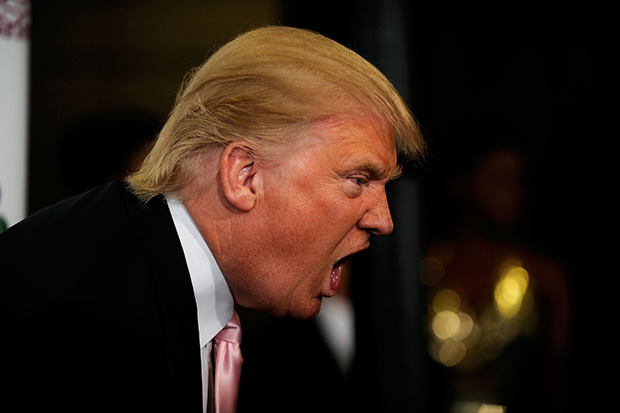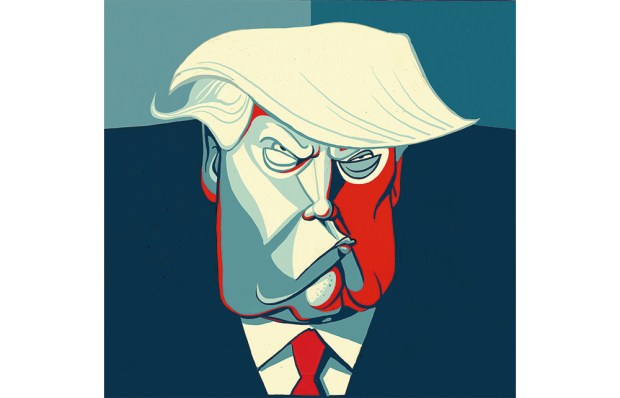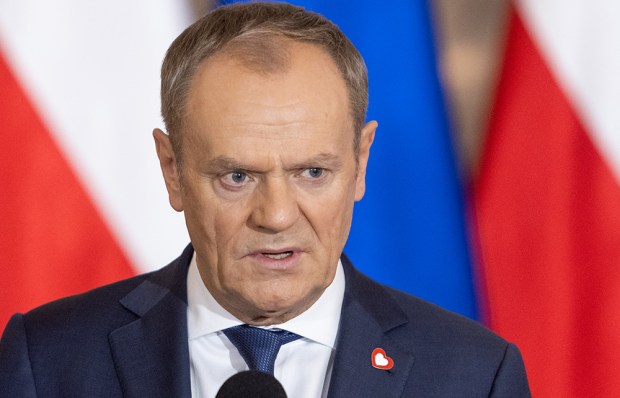Washington, DC
A few weeks ago, I attended the 40th gala dinner of a Washington think tank called the Ethics and Public Policy Center at the St Regis Hotel, just down the street from the White House. William Kristol, editor of the neoconservative Weekly Standard and unrepentant champion of the Iraq War, was the MC and Paul Ryan, -Speaker of the House, the star guest.
Kristol began by noting that Donald Trump had referred to him in various tweets as ‘dopey’, the editor of a ‘slightly failing magazine’ and ‘very embarrassed to walk down the street’ because of his failure to endorse Trump. Kristol joked: ‘It’s been a tough two or three months of rehabilitation for me.’ After the audience finished laughing, he added: ‘This should be a Trump-free evening so that’s enough Trump.’
Actually, it wasn’t. Like a group of White Russians after the Bolshevik revolution, the assembled neocon stalwarts could not avoid the spectre of their tormenter. At my table that night, the reaction was consternation as Trump achieved a blowout victory in the New York primary. Since then he has gone on to become the presumptive nominee of the GOP.
Washington’s elite can see that Trump is tearing down the conservative house built by William F. Buckley Jr, Barry Goldwater and Ronald Reagan. Trump is a heretic against the Republican Trinitarian doctrine: low taxes, firm opposition to abortion and a militantly crusading foreign policy.
Trump often sounds like a Republican version of Bernie Sanders. He has made it clear that he would be prepared to raise taxes on the wealthy and increase the minimum wage. He isn’t really all that worried about the federal deficit, either. You can always print more money, he says. Similarly, when it comes to free trade, he blissfully parts company with those Chamber of Commerce Republicans who see it as essential to maintaining an American-led economic order.
In many ways Trump is to the left of his soon-to-be-confirmed opponent in November, Hillary Clinton. Some are even predicting that he may move to her left on healthcare. He is styling himself as a -populist rather than a conservative in the hope of appealing to white working-class voters in traditional Democratic strongholds in the Midwest and elsewhere.
And the worst part for mainstream conservatives? His strategy has a chance of working. A new Quinnipiac University poll has Trump battling head to head with Clinton in the swing states of Florida, Ohio and Pennsylvania. For Washington’s elite, the only thing worse than his earning the Republican nomination would be him -winning the presidency.
So now, almost every day, a -prominent right-wing talking head or politician announces that they will not sully their escutcheons by backing Trump. But what this elite can’t decide is what they should do now. Do they abstain and encourage others to do the same in November? Do they hold their noses and vote for Clinton? Do they find an independent party candidate? Or do they find a way of coming round to Trump so as to not lose influence if he does win?
Some have already decided to embrace the lesser evil of Hillary. Her reliably interventionist foreign policy offers a safe haven for neocons such as Max Boot, a former editor at the Wall Street Journal, and Robert Kagan, the historian and champion of American exceptionalism, whose -hawkish feathers have been ruffled by Trump’s conciliatory words about Russian president Vladimir Putin. Boot says that Trump represents a greater national security threat than the Islamic State. Kagan, depicting Trump as a Frankenstein, says: ‘The Republicans’ creation will soon be let loose on the land, leaving to others the job the party failed to carry out. For this former Republican, and perhaps for others, the only choice will be to vote for Hillary Clinton. The party cannot be saved, but the country still can be.’
Not for everyone such humble pie. Others are swallowing hard and pledging fealty to Trump. For example, ex-Texas governor Rick Perry, who once said Trump’s candidacy was a ‘cancer on conservatism and it must be clearly diagnosed, excised and discarded’, now says he would like to be his vice president. Senator John McCain, the 2008 nominee, is also coming around, deeming Trump ‘capable’ of being president. It’s pathetic to watch them bowing before the new king they so desperately tried to stop.
Still, holdouts remain. Some former Republican stalwarts are pushing for a ‘third party’ conservative candidate. Senator Ben Sasse, for instance, has announced that he will never support Trump. The popular radio host Erik Erickson wants a ‘credible candidate’ to offer an ‘exit strategy from Donald Trump’s Republican party’. Bill Kristol tried to persuade former general James Mattis to run. He also met 2012 nominee Mitt Romney this week, trying to persuade him to make a bid. Neither bit.
The neocons might be able to agree on a candidate who would appeal to elements of the party’s traditional base and let them maintain their sense of purity. But the effect would be to siphon votes away from Trump and increase Clinton’s share of the vote, so it makes little political sense.
Perhaps there is a final option for neocons such as Kristol, however. It’s that Trump reaches out to Florida senator Marco Rubio to be his vice president. Before his battering at the hands of Trump — who crowned him ‘little Marco’ — Rubio was the neocons’ finest creation. He is a foreign policy ultra-hawk who touted as his campaign slogan nothing less than a ‘new American century’. On Tuesday, Rubio indicated he would back Trump. Might Trump return the favour by making him his running mate?
A Trump-Rubio ticket would enable a Trump-neocon rapprochement. They share a mutual disdain for Clinton, and though Trump may have scorned the foreign policy legacy of George W. Bush — a policy -pretty much dictated by William Kristol and his gang — the elastic nature of his convictions suggests he would have no trouble re-inventing himself. Surrounded by a -phalanx of neocons, he could be born again as a foreign policy hawk. This might go a long way towards ending the schism created by his rise — and the neocons currently mourning his candidacy could achieve redemption.
Got something to add? Join the discussion and comment below.
Get 10 issues for just $10
Subscribe to The Spectator Australia today for the next 10 magazine issues, plus full online access, for just $10.
Jacob Heilbrunn edits the National Interest, and is the author of They Knew They Were Right: the Rise of the Neocons.
You might disagree with half of it, but you’ll enjoy reading all of it. Try your first month for free, then just $2 a week for the remainder of your first year.














Comments
Don't miss out
Join the conversation with other Spectator Australia readers. Subscribe to leave a comment.
SUBSCRIBEAlready a subscriber? Log in